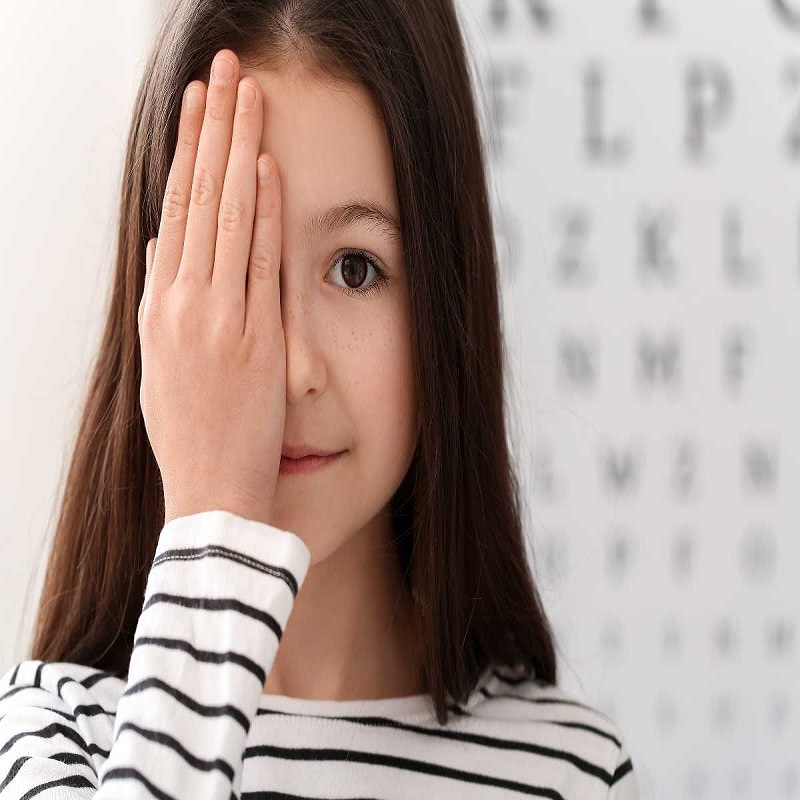Introduction to Excessive Blinking in Toddlers
If you’ve noticed your toddler blinking more than usual, you’re not alone. Many parents observe their children displaying this behavior and wonder about the cause. Excessive blinking in toddlers can stem from various factors. It might be a temporary habit or a response to environmental stimuli. Sometimes, it’s a sign of an underlying health issue. As an SEO expert and a professional blogger, I aim to shed some light on why your toddler might be blinking so much.
In this post, we will explore the common reasons behind excessive blinking in toddlers. We’ll look into irritants, potential stressors, and when it might be more than just a simple habit. Understanding these causes can help you determine the best course of action. It can provide peace of mind or prompt you to seek further medical advice if necessary.
Keep an eye on your child’s blinking patterns. Note any changes or other symptoms that may occur. This information could be valuable when discussing your concerns with a healthcare professional. Let’s dive into the common causes of frequent blinking, so you can better understand what your toddler might be experiencing.

Common Causes of Frequent Blinking
Eye Irritants and Allergies
Common triggers for excessive blinking often include eye irritants and allergies. Dust, smoke, and pollen can irritate a toddler’s sensitive eyes. These irritants cause discomfort, making toddlers blink more to find relief. Allergies, such as those to pet dander or certain foods, might also lead to increased blinking. They can cause itchy, watery eyes, prompting your toddler to blink more often than usual. In these cases, identifying and removing the irritant or allergen is key. It can greatly reduce blinking frequency and discomfort.
Vision Problems and the Need for Glasses
Another reason why your toddler might be blinking so much could be undiagnosed vision problems. Short-sightedness, long-sightedness, or astigmatism can all make focusing difficult. This strain might cause your child to blink more in an attempt to clear their vision. Regular eye exams are crucial for young children. They ensure that any vision issues are identified and corrected early with glasses or other treatments.
Stress and Anxiety in Children
Stress and anxiety can manifest in physical symptoms in children, including excessive blinking. If your toddler feels overwhelmed, blinking might be a subconscious coping mechanism. Try to observe if the blinking increases during specific situations or times of stress. Offering comfort and addressing any sources of anxiety can help reduce this behavior. Fostering a calm and stable environment is essential for your child’s wellbeing.
When to Be Concerned: Understanding the Signs
Not all instances of excessive blinking are cause for alarm. However, understanding when to be concerned is vital for your toddler’s health. As a vigilant parent or caregiver, you should be aware of certain indicators that may suggest a need for a professional evaluation.
Timing and Frequency of Blinking
Pay close attention to the timing and frequency of your toddler’s blinking. If the blinking is persistent and occurs for several days or more without improvement, it could indicate a more serious issue. Monitor whether the blinking is more frequent at certain times of the day, or if it interrupts your child’s daily activities. Consistent, excessive blinking that lasts longer than a week is something you might want to discuss with a doctor.
Accompanying Symptoms to Watch For
Besides the frequency of blinking, look for other symptoms that could accompany it. These could include eye redness, sensitivity to light, or rubbing of the eyes. Your toddler might also exhibit behavioral changes such as irritability or lack of focus. If symptoms like these arise alongside frequent blinking, they could signal an underlying condition that requires attention. It’s essential to note these additional symptoms as they can help with a quick and accurate diagnosis by a healthcare professional.
Diagnosing the Issue: When to Visit a Doctor
If you’ve observed persistent excessive blinking in your toddler, it’s wise to consider a doctor’s visit. Don’t delay if blinking disrupts daily activities or is accompanied by other concerning symptoms like eye redness or sensitivity to light. A healthcare professional, especially a pediatric ophthalmologist, can assess whether there’s an underlying health issue.
When deciding it’s time for a medical evaluation, trust your instincts. You know your child best. If their blinking seems unusual or bothersome to them, a check-up is justified. Record instances of your toddler’s blinking and any other symptoms to share with the doctor. This record will help with a speedy and precise diagnosis.
What to Expect at the Pediatric Ophthalmologist
Visits to the pediatric ophthalmologist begin with a comprehensive eye exam. The doctor will check for common eye issues in toddlers, such as vision problems or infections. They may use special lights or magnifying tools to examine the eye’s health closely.
The ophthalmologist may perform tests to evaluate your child’s vision clarity. These tests are designed to be kid-friendly. Your toddler might look at pictures, shapes, or a light to determine their ability to focus.
Be ready to discuss your child’s medical history and any family history of eye conditions. This information is critical for understanding potential genetic factors.
If necessary, the ophthalmologist might recommend further testing. These could include allergy tests or neurological evaluations, depending on the symptoms. Rest assured, the goal is to make your child comfortable and diagnose any issues accurately.
Ensure your toddler knows that the doctor’s visit is to help them feel better. Keep the mood light and positive, reinforcing that there’s nothing to be afraid of.

Treatment Options and Home Remedies
When addressing why your toddler is blinking so much, it’s essential to consider various treatment options and home remedies that might offer relief.
Medical Treatments and Interventions
If a pediatric ophthalmologist identifies a specific condition, they may prescribe medical treatments. These could include eye drops for allergies or infections. In cases of vision problems, corrective glasses could be recommended. If blinking results from stress or neurological issues, a referral to a specialist for therapy or counseling might be the next step.
Always follow the prescribed treatment plan and keep up with follow-up appointments. This ensures any treatment changes can be made if needed.
Simple Strategies for Relief at Home
For immediate comfort, several home strategies might help alleviate your toddler’s excessive blinking:
- Moisture: Use a clean, damp cloth to gently wipe your toddler’s eyes. This can help remove any irritants.
- Rest: Ensure your child gets plenty of sleep, as fatigue can exacerbate eye strain.
- Breaks: Limit screen time and encourage breaks during activities that require intense focus.
- Comfort: Offer your toddler comfort and reassurance, especially if stress is a factor.
Remember, these home remedies are supportive measures and not replacements for professional medical advice or treatment. Monitoring your toddler’s condition and staying in touch with a healthcare provider is crucial.
Preventative Measures for Healthy Eyes
It’s not just about reacting to symptoms. For your toddler, taking preventive steps is key. Maintaining their eye health can help keep excessive blinking at bay. By being proactive, you can often avoid some of the common triggers of irritation and discomfort. These steps are not only helpful but also easy to implement in your everyday routine.
Tips for Minimizing Eye Strain and Discomfort
To prevent eye strain and discomfort in toddlers, consider these simple tips:
- Protective Gear: When outside, have your toddler wear sunglasses or a hat. This guards against harsh sunlight and dust.
- Clean Environment: Keep your home free of dust and smoke. This reduces the chances of irritants affecting your toddler’s eyes.
- Healthy Diet: Offer foods rich in vitamins A and C. Carrots, spinach, and oranges support eye health.
- Hydration: Encourage your toddler to drink water throughout the day. Proper hydration helps maintain eye moisture.
- Well-lit Spaces: Ensure play and reading areas are well-lit to avoid squinting and straining.
- Limit Screen Time: Too much screen exposure can lead to eye strain. Set limits on digital device use.
- Regular Checkups: Don’t skip the recommended eye exams. These can catch issues before they become problems.
- Eye Exercises: Teach your toddler simple eye exercises. For instance, looking away from a book or toy every few minutes.
Incorporating these habits into your family’s lifestyle can make a significant difference. They aid in preventing eye strain and keeping your toddler’s eyes healthy. Remember, if you have concerns, reaching out to a doctor is always a good step.

Conclusion: Monitoring Your Child’s Eye Health
In conclusion, parental vigilance is crucial when it comes to your toddler’s eye health. If you ask yourself, ‘why is my toddler blinking so much?’, consider the various causes discussed. These include eye irritants, allergies, vision problems, and emotional stressors. Remember to look for signs like persistent blinking, eye redness, and sensitivity to light. These symptoms can signal the need for a professional consultation.
When it comes to treatment, a balance between medical interventions and home care creates the best approach. Follow the pediatric ophthalmologist’s guidance, whether it involves eye drops or glasses. At home, simple steps like regular eye wipes, breaks from screens, and ensuring good rest can provide some relief.
Prevent eye issues with protective sunglasses, maintaining a clean environment, and offering a healthy diet. Keep hydrating your toddler and setting up well-lit play spaces. With these measures, you can minimize eye strain and promote overall eye health.
Stay proactive and keep up with regular eye checkups. Teach your toddler good eye habits early on. If concerns arise, seeking medical advice is the best route. Monitoring and maintaining your child’s eye health is a journey. With care and attention, you can support their well-being and comfort.
